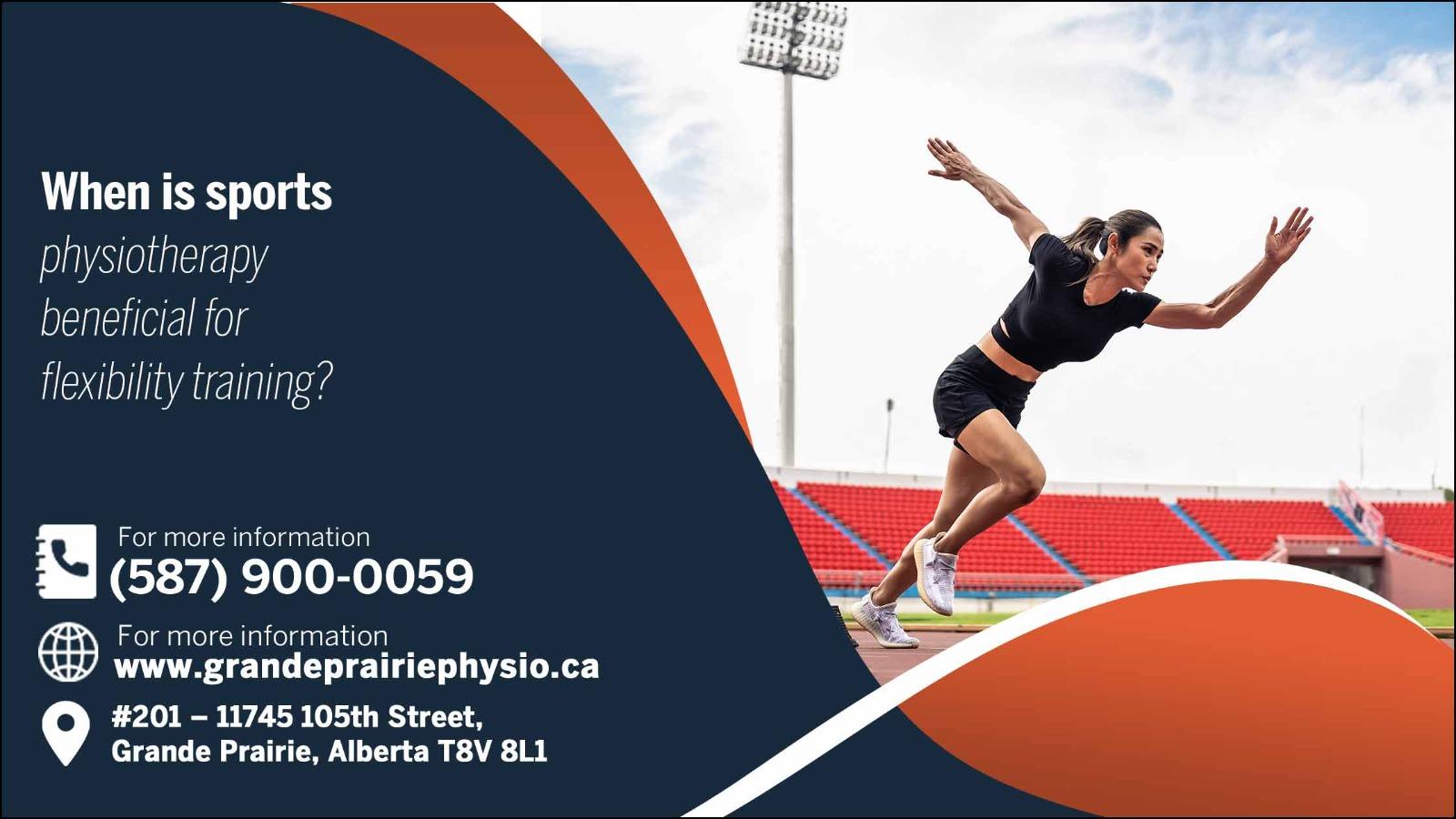In athletic development and injury prevention, sports physiotherapy has emerged as a cornerstone, offering athletes and fitness enthusiasts a pathway to achieve peak performance while minimizing the risk of injury. Particularly in Grande Prairie, where the athletic community thrives, integrating sports physiotherapy into flexibility training routines has proven immensely beneficial. GP Pain Physiotherapy Grande Prairie provides expert care and guidance to those seeking to enhance their flexibility and overall physical capability. This article delves into sports physiotherapy's pivotal role in flexibility training, underscoring its significance in an athlete's regimen.
The Foundation of Flexibility in Athletic Performance
Flexibility, a fundamental aspect of physical fitness, is the joint's ability to move through the full range of motion. It contributes significantly to athletic performance and injury prevention. Sports physiotherapy, with its deep understanding of human biomechanics and muscular function, is perfectly poised to assist athletes in optimizing their flexibility. This is particularly true in Grande Prairie, where sports physiotherapists employ evidence-based techniques to improve flexibility, thereby enhancing performance and reducing the likelihood of sports-related injuries.
When Sports Physiotherapy Becomes Essential
Post-Injury Rehabilitation: Returning to full function and performance can be challenging following a sports injury. Sports injury physiotherapy in Grande Prairie focuses on rehabilitating injured athletes, ensuring a safe and effective return to activity. Through targeted flexibility and strengthening exercises, sports physiotherapists help restore range of motion, reduce stiffness, and prevent compensatory movements that could lead to further injury.
Preventive Measures: Sports physiotherapy is critical in identifying potential risk factors for injury, including limited flexibility. By incorporating flexibility training into an athlete's routine, physiotherapists can address biomechanical imbalances and tightness in muscles that often lead to injuries, ensuring athletes can perform at their best without being sidelined by preventable issues.
Performance Enhancement: Flexibility training under the guidance of a sports physiotherapist can lead to significant improvements in performance. Enhanced flexibility contributes to a greater range of motion, allowing athletes to execute movements with improved efficiency and power. Sports physiotherapy offers personalized flexibility programs that are sport-specific, enabling athletes to achieve optimal performance through tailored interventions.
Managing Chronic Conditions: Athletes with chronic musculoskeletal conditions can benefit greatly from sports physiotherapy focused on flexibility training. Regular, supervised stretching and flexibility exercises can help manage symptoms, improve functional movement, and reduce pain associated with chronic conditions. Physiotherapists provide comprehensive support for athletes dealing with long-term issues, integrating flexibility training as a key component of the management strategy.
How Can Flexibility Training in Sports Physiotherapy Benefit Athletes Across Different Sports
This segment explores how tailored flexibility training can benefit athletes in different sports, highlighting the common injuries associated with each sport and how enhancing flexibility can mitigate these risks.
Running and Lower Limb Injuries
Runners often face lower limb injuries, including shin splints, Achilles tendonitis, and hamstring strains. Incorporating flexibility training into their routine can significantly reduce the risk of these injuries. Sports physiotherapy in Grand Prairie focuses on enhancing the flexibility of the calf muscles, hamstrings, and hip flexors, which can improve stride efficiency and reduce the impact on the lower limbs. Regular stretching and mobility exercises, prescribed by a sports physiotherapist, can help maintain optimal muscle length and prevent overuse injuries common in long-distance running.
Swimming and Shoulder Injuries
Due to repetitive overhead motions, swimmers are prone to shoulder injuries, such as labral injuries, rotator cuff tendonitis, and shoulder impingement syndrome. Flexibility training in sports physiotherapy for swimmers targets the shoulders, chest, and upper back, aiming to enhance the range of motion and reduce stress on the shoulder joints. By improving flexibility in these areas, swimmers can achieve smoother, more efficient stroke mechanics, reducing the risk of shoulder injuries and enhancing overall performance in the water.
Basketball and Ankle Sprains
Basketball players frequently experience ankle sprains due to the high-impact, quick directional changes required by the sport. Flexibility training, as part of a sports physiotherapy program, focuses on improving the range of motion in the ankles and strengthening the surrounding muscles. This not only aids in the recovery from ankle sprains but also serves as a preventive measure. Enhancing ankle flexibility and stability allows basketball players to navigate the court more safely and effectively, minimizing the risk of future sprains.
Gymnastics and Back Injuries
Gymnastics demands a high level of flexibility, and gymnasts are at risk of back injuries, including muscle strains and stress fractures, due to the extreme bending and twisting movements. Sports physiotherapy in Grand Prairie is vital in developing a flexibility training program that safeguards the spine's health. Emphasizing the flexibility of the back, as well as the abdominal and hip muscles, helps gymnasts achieve the necessary movements for their sport while minimizing the risk of back injuries. This preventative approach ensures that gymnasts can perform their routines with reduced risk of injury.
Soccer and Groin Strains
Groin strains are a common issue for soccer players, resulting from quick changes in direction, kicking, and side-to-side movements. Flexibility training within sports physiotherapy targets the groin, hip flexors, and thigh muscles, which are crucial for maintaining lower body flexibility and preventing strains. By incorporating specific stretching exercises that improve the flexibility and strength of these areas, soccer players can protect themselves against groin injuries, enhancing their agility and performance on the field.
Unlocking Athletic Potential: The Crucial Role of Flexibility Training in Sports Physiotherapy
Flexibility training in sports physiotherapy offers tailored solutions to athletes across various sports, addressing each discipline's unique demands and injury risks. By focusing on sport-specific flexibility and strengthening exercises, sports injury physiotherapy aids in injury prevention and rehabilitation, allowing athletes to maintain peak performance and longevity in their sports careers. For athletes in Grande Prairie, GP Pain Physiotherapy provides expert guidance in sports injury physiotherapy, ensuring athletes have access to the best possible care and training techniques to keep them performing at their best. Whether it's running, swimming, basketball, gymnastics, or soccer, integrating flexibility training into an athlete's regimen under the supervision of a sports physiotherapist is key to a healthy, successful sports journey.
Also read about:
How to choose the best furniture shop in uae
WHAT ARE THE TOP TRENDS MATTRESSES IN UAE
Best Business Contract Lawyer in US
















